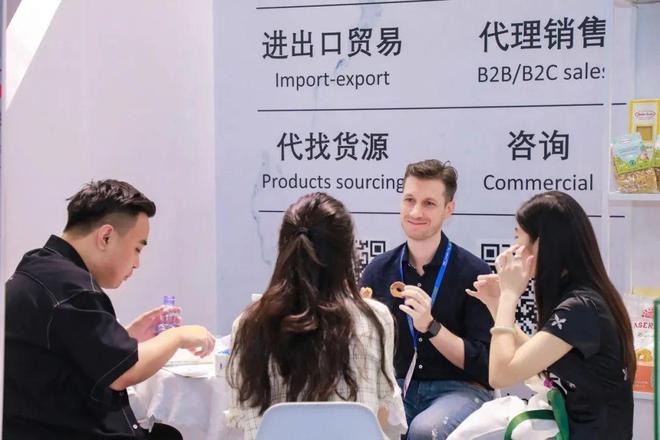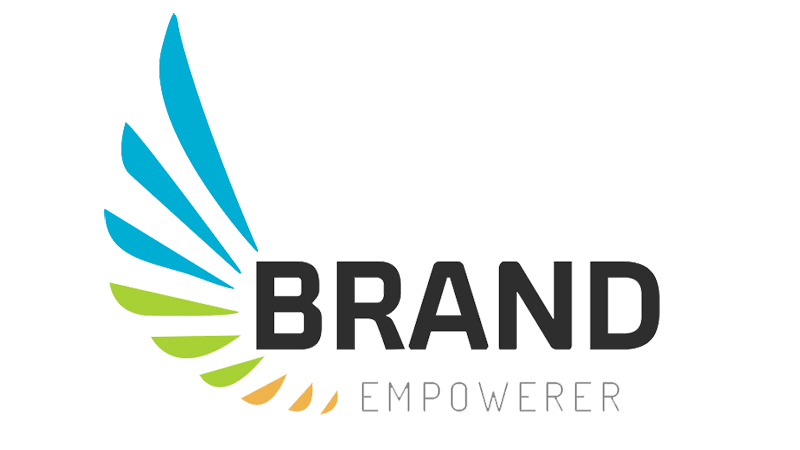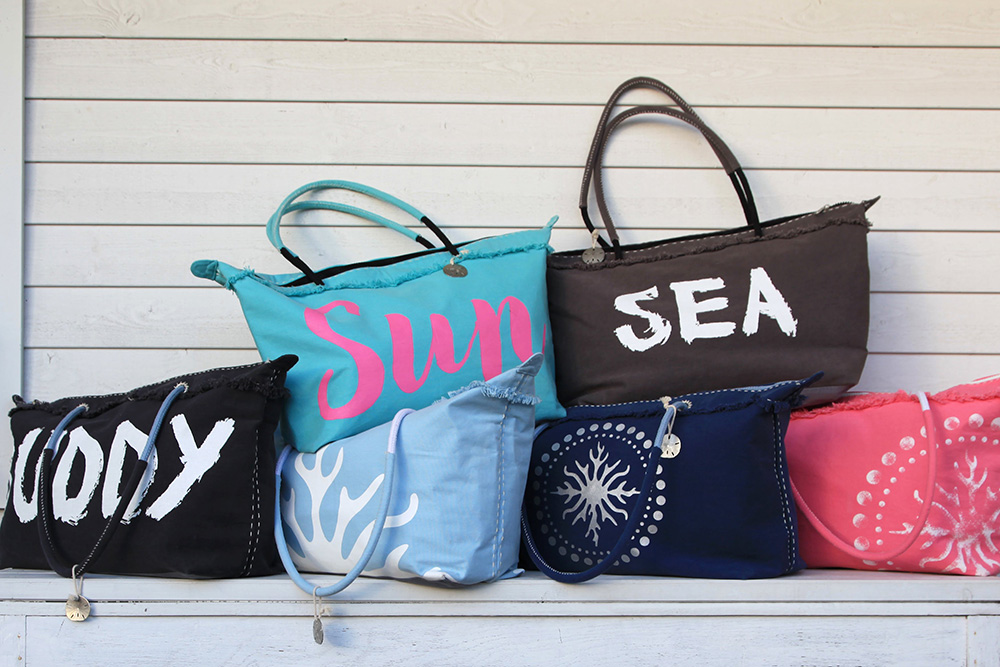How do people engaged in international procurement choose suppliers
Export companies usually encounter a lot of troubles whether they are doing e-commerce or other overseas promotions. I sent out a lot of emails, but didn’t get any reply; I felt that I had been communicating well with buyers, but in the end it was nothing; I received a lot of quality inquiries, but in the end there was no deal... Many friends feel that they are not good at communication. It has been done perfectly, but why do the problems mentioned above still occur?

Let’s put aside marketing and promotion techniques for the moment, and instead analyze and discuss the factors for selecting suppliers from the perspective of overseas buyers. What are the reasons that caused you to miss your buyers?
- Price is not the only criterion
For many foreign trade salesmen, "one quotation dominates the world" may be the simplest and easiest way to work. However, once customer feedback and concerns are encountered, the most common method is to actively reduce the price, or ask the other party to propose a target price. If they do not accept it, they will not be able to continue. However, in fact, in international trade, buyers from different regions have very different price evaluation standards, and price is not the only determining factor.
Western European and American buyers
Quality always comes first
Buyers in Western Europe and the United States require suppliers to have good certification standards, management systems, production processes, inspection mechanisms, etc.
Due to Europe's long contract culture and strict legal system, products with poor quality cannot be accepted by the market. Once a problem occurs, the product will be recalled unconditionally and high compensation will be paid. Therefore, quality is the core and soul for the European and American markets.
When we negotiate with European and American customers, don't just focus on price. Because for European and American buyers, high prices are not a problem, but they must be explained to them why the prices are high. It is necessary to highlight the high added value of the product, the advantages of quality, and the advantages of service, so as to highlight the selling points. This is much more effective and more convincing than simply taking the initiative to reduce prices.
They pay more attention to whether the product can be delivered in time, whether there are any quality problems, the damage rate of the product during transportation, what kind of after-sales service support is provided, and whether there are any customer complaints, etc.
Second on the list is accurate delivery
For the Western European and American markets, their business model is a "chain operation" model. For example, Carrefour, Wal-Mart, and IKEA around us, as well as McDonald's and KFC in the catering industry, all operate according to this model. Then, his highest requirement is accurate delivery time. Only accurate delivery time can ensure the stability and reliability of the entire supply chain, so that every link can be delivered and operated in a timely and accurate manner.
Ranked third is the service concept.
Understand the service concept of the entire market. Although the quotation is high, his concept can provide better and more complete services for future cooperation, and this potential value is far greater than the difference in unit price.
Buyers from Russia, Ukraine and other former Soviet countries as well as Eastern Europe
Price is very importantAlthough in the early 1990s, the political system in this region underwent a series of changes. However, the region’s economic model and market operating habits still retain the so-called “intensive economic model” of large-scale centralized procurement, centralized production, and centralized distribution in the past few decades.
Therefore, when we participate in exhibitions in Russia, Ukraine, and Eastern Europe, we usually find an interesting phenomenon. Neither exhibitors nor buyers usually speak English very well. Most of them are not very enthusiastic about purchasing directly from the place of production, but are more concerned about the nearest suppliers near them. Therefore, the order volume purchased from this region is usually relatively large, but at the same time the price requirements are very high.
Because the order quantity is large, slight changes in the unit price will cause significant changes in the total cost. Therefore, buyers will constantly try to drive down suppliers' prices, and ultimately work with the supplier with the lowest price. As for quality, there are no such strict requirements.
Markets in some countries in Southeast Asia and the Middle East
Due to its small economic scale, on the one hand, it has considerable price requirements, but at the same time, there are many other uncertain factors. In project bidding, construction, and commercial procurement, interpersonal relationships, commissions, and factors below the desktop often determine whether the transaction is successful or not. Successful leadership. For customers in these areas, some tips can be used in the marketing process.
For example: after our foreign trade salesmen give quotations to customers, they often use some instant chat tools (such as MSN, Yahoo, Skype, etc.) to communicate with further customers. During the communication process, they can convey additional content to customers, such as, Our quotation includes a 2-3% commission, and sometimes the amount of this commission is 3-5 months or even more of the other party's salary. When the order is completed, we pay them the commission as promised. If the order is not completed, there is no need to pay a penny from our own pocket to the other party.
This is equivalent to placing one of our own among our negotiating opponents without spending any money to help us collect information and enhance effective communication to facilitate the final trade deal.
Therefore, as a salesperson, it is not enough to simply discuss the price with the customer. You should strengthen communication with the customer, use language that the other party can understand, use more open questions, analyze the differences of the customer, and target the customer. Customers from different regions and of different natures adopt different strategies, so that they can dominate international trade. Only by being good at thinking and analyzing customers can we be targeted and remain invincible.
- Stability and reliability of supply chain
As an overseas buyer, what you most hope is to deal with manufacturers or traders who have their own factories, and reduce the intermediate links as much as possible to obtain the best price and best service. This is a necessary review step for buyers to select their final partner.
Many times, when foreign trade salesmen are communicating with overseas buyers, the other party will ask whether we are a factory or a trader. The unique advantage of the factory is that it has superior technical resources, can make timely technical improvements and upgrades according to customer needs, and can better control the production cycle, control costs, etc.
But for traders, there are also unique advantages that manufacturers do not have. Traders tend to be more professional in foreign trade knowledge and foreign trade risk control. During the export process, almost 80% of orders will have problems of one kind or another, whether subjective or objective. Often foreign trade companies can always provide the most timely and professional solutions. In addition, when an order is in one-to-many mode, it is easier to control the entire situation and process by cooperating with a foreign trade company. How to coordinate the production cycle, delivery time, packing time, etc. is a problem that overseas buyers cannot avoid. The ultimate solution, then, is to trade with a trader. The entire trade process is completed with a verification form and a set of export documents. The traders will be responsible for all necessary links such as payment, coordination, and export arrangements for all factories. The final price is just a 2% agency fee paid to the supplier.
So, as an overseas buyer, whether to choose a manufacturer or a trader, the most important factor is to ensure stability and reliability during the entire trade process.
- Large-scale export capabilitiesFor overseas buyers, it is hoped that partners have the potential to provide large-scale products. A manufacturer's export volume and sales objectively illustrate the value of its products, how broad its consumer base is, and how deep the potential market can be. Many buyers are accustomed to and trust companies with certain export capabilities.
The current international trade exists in the form of long-term versus long-term. That is to say, it is impossible for an overseas buyer to have only one supplier to produce for him, and similarly, it is impossible for a supplier to have only one buyer, otherwise there will be high business risks. Once there is any problem with the partners, it will bring about a subversive crisis. Therefore, buyers know very well that suppliers cannot produce for just one of them. If the supplier's production scale is small, it will not be able to meet the demand of the order. Once it is rushed to meet the orders of other buyers, the delivery time will be delayed. This is unacceptable to most customers, which returns to the previous topic and cannot maintain the stability and reliability of the supply chain.
On the other hand, when a product has not been sold to the target market, no one can predict what will happen. If the sales volume is very good, it is very likely that the number of subsequent orders will be several times that of the previous orders. If the supplier's production scale is limited, it will not be able to meet the market demand. Especially the current production and process capabilities of Chinese suppliers, objectively speaking, still lag behind international standards. Two factories, or even two production teams in the same factory, can produce very different products using the same drawing. The final analysis is that the degree of standardization and the accuracy of equipment are still relatively backward, and human factors still account for a large proportion in the production process. Therefore, under such circumstances, overseas buyers still tend to choose a company with large-scale production capabilities as their stable supplier. For many small and medium-sized enterprises, they can gain the trust of overseas buyers by moderately exaggerating their production scale and capabilities, but be careful not to over-exaggerate.
- Markets that suppliers have entered
For overseas buyers, in addition to basic factors such as price and delivery time, it is crucial to understand the markets that suppliers have entered and their sales records in relevant target markets.
Whether it is general trade or OEM (Original Equipment Manufacturer) services, when a product enters the target market, it requires a process of acceptance and adaptation by the market. Therefore, having sales records in the target market becomes the most effective intangible certificate for suppliers. It enables buyers to have a conceptual understanding of the supplier's product quality, production process level, applicable standards, trademarks and brand access and other information in the shortest possible time. Generally, overseas buyers are more likely to trust the purchasing experience of their peers.
For different industries and product types, overseas buyers have different concerns about suppliers' sales records. In industries such as machinery, heavy industry, infrastructure systems, etc., due to the large differences in the applicable standards of industries in various countries, for example, the standards used in our country are GB (National Standard) or JB (Ministry of Machinery Standards). All industrial product design and manufacturing, They are all implemented in accordance with these standards and have corresponding GB codes, such as: GB 4573-H. Other developed countries also have their own national standards, such as ASTM (United States), BS (United Kingdom), DIN (Germany), JIS (Japan), GOST-R (Russia), etc. Compared with our country's national standards, some of these standards can be consistent, but most of them are very different. Therefore, when producing overseas orders, production needs to be carried out in accordance with relevant standards and processes. However, because many small businesses do not have this level of equipment and production capabilities, they often adopt opportunistic methods.
Taking water and oil treatment systems as an example, there are different standards for the valves and pumps used in the pipelines. For example, the entire system complies with the DIN3352 German standard, so all individual devices are required to comply with such standards. Some of our small businesses do not have such molds and production capabilities, and do not want to give up the order, so they only produce the flanges of all connecting parts according to this standard, while the whole is still GB standard. This brings great difficulties to customers. Although it seems that the flange standards can be connected, in fact, because the structural length of the Chinese standard is larger than the German standard, this equipment cannot be placed in the pipe network system. Not only did it waste a lot of time and modification costs for the seller, but it also had serious negative impacts.
Therefore, for this type of product, the supplier's sales record in the destination country is very important, which directly reflects its production capacity and process level. When we receive such an inquiry, whether the customer has asked or not, if we can proactively introduce our sales records, it will be helpful to the customer, and we can also directly increase our sales volume in the first place. The impression in the minds of overseas buyers.
And for clothing, furniture, fashion industry, etc. For this type of product, the supplier's sales record in the seller's destination country is directly related to the market potential of the sub-category of products and the competitive pressure from the same industry. Every buyer of trendy new products hopes to “take the lead with one move and eat it all over the world.”
In 2007, a well-known home furnishing chain store in Thailand purchased a newly designed PE dining chair from China, at a rate of 3,000 pieces per month. The CIF price is around US$12, while the local sales price exceeds US$135, which is more than 10 times. Three months later, similar imitations entered the market, and the price dropped from the original $135 to about $60. In two months, this dining chair will no longer be sold, but will be turned into other new products. Because for the fashion industry, the profit margin of new products is much higher than that of ordinary products.
For this type of product, due to its popularity and exclusivity, we can arouse the interest of overseas buyers through new products, and operate the target market through exclusive agency. As long as we are good at grasping it, we can increase the profit margin of sales. You can also gradually establish your own overseas marketing and relationship network.
- Complete certification system
Overseas buyers most hope to cooperate with companies that have passed international certification systems, such as ISO, SGS, DNV, etc. For example, European buyers require that most imported products must obtain CE certification, and some countries also require some professional certifications depending on the product type, etc. Such as: British BS fire protection registration certification, Germany's GS German standard certification, etc. For American buyers, ISO quality and management system certification are more important. In addition, in the American market, industry associations are relatively credible and authoritative. Then some relevant industry association certifications are also a reference for buyers to choose suppliers. Such as: API (American Petrol Institute) American Petroleum Institute certification, AWWA American Water Industry Association certification, etc. In some less developed areas, such as Southeast Asia, some countries in the Middle East and some areas in Africa, the usual certification standards are ISO. At the same time, some Chinese certification standards are also acceptable, such as: CQC, CCIC, CCC, etc.
In addition, under the certification system, there are also professional requirements for the certification mechanism of corporate qualifications and quality inspection. For overseas buyers, the third-party certification mechanism is a fair, independent, and frequently used inspection mechanism. There are usually the following methods: authorizing a third-party individual to serve as a QC (quality control agent) to inspect product quality, production technology, company qualifications, etc.;
Authorize a third-party peer with credibility to inspect the enterprise. Usually the peer has a better understanding of the enterprise's qualifications, products, production capabilities, etc., as well as its advantages and disadvantages; however, this method is relatively difficult to implement in China. Due to the unique habits of the Chinese people, when buyers ask them about the products and operating conditions of their peers, they often cannot get fair answers; certification is carried out by third-party international certification organizations, such as: SGS, BV, etc.
Rich foreign trade experience and professional talentsOverseas buyers need partners with foreign trade experience and mature operation teams. What they need is not only professional foreign trade knowledge, but also familiarity with the corresponding operational experience in the export process, as well as the preparation of standardized business documents, and efficient multi-language communication skills. etc. This can ensure that products are fully introduced, understood, accepted and sold to overseas markets. For enterprises in the 21st century, products are resources, funds are resources, but the most important resource is talent.
In 2004, two factories producing precision machining tools were established in Dongying City, Shandong Province. One of them has a registered capital of 20 million, and the other only has 8 million. If the outcome is determined by strength, then the factory with more investment will develop very quickly, and is even expected to become the industry leader in the region. But reality often differs from expectations. In 2007, when I was invited to visit these two companies again, I found that more than 60% of the production capacity of this larger company was processing for the relatively smaller company. After understanding, the reason was that this small company had a very elite foreign trade sales team, so that the number of orders it received far exceeded the production capacity of its own factory. So just imagine, maybe in 5 years, or even shorter, this larger factory may be merged or even annexed. Then the biggest root cause lies in talent. As the saying goes, if one person can build a country, one person can also build a factory.
For business operations in the 21st century, the importance of talents is constantly being highlighted and has increasingly become the core competitiveness of enterprises. As our foreign trade salesperson, we must have a sense of responsibility when negotiating with customers and communicating through emails. Because every email you send and every sentence you say represents not only yourself, but the company behind you. Overseas buyers understand the strength of the company through communication with our salesmen, determine whether to further in-depth communication, and formulate final purchasing intentions. Therefore, each of our foreign trade salesmen should regularly reflect on their business level, knowledge reserves, and understanding of policies to see whether they meet the needs of enterprise development in order to better enrich and improve themselves.
On the contrary, as a business manager and operator, do you have enough experience, knowledge and management art to select and maintain an excellent and stable team, and be able to inspire the potential and enthusiasm of each team member so that To unleash the greatest capabilities, this is a topic that we urgently need to think about in nuclear research.
- Honest business styleIntegrity and trustworthiness constitute the moral standards for dealing with people. Integrity is the heart and soul of business. Without integrity there can be no truly successful business. There is an old Chinese saying that goes: In the beginning, human nature is inherently good. However, our awareness of integrity in interpersonal communication is lacking, especially in the business process. When Chinese people negotiate for the first time, they often first think about whether the other party is deceiving and whether there are traps behind every word. Usually after several long interactions, you will come to the conclusion that this person is not as bad as you first imagined. Western culture is just the opposite. Western thinking believes that everyone is born with sin, so they must often atone for their sins and repent. But the first belief Westerners have when interacting with strangers is trust. He will believe you no matter what you say, but don't let him find out that you lied to him.
Many of our companies, for the sake of immediate small profits, discount what they say about quality and other aspects, and make unrealistic promises. Some business operators even believe that once they receive a deposit from a customer, they transform from slave to god. Many overseas buyers have reported that as long as some Chinese companies receive the deposit, they will never take the money out of their pockets, even if they cannot do what they originally promised. This has greatly damaged the trust of customers, and also extremely affected the international reputation of Chinese-made products and Chinese manufacturing companies.
For overseas buyers, they can bear quality defects because they can jointly research and improve; they can also bear design deficiencies because they can be discussed together. However, deception cannot be tolerated. Once he is found to be deceived in one place, it means that there may also be deception in other places. So there will definitely be no next chance. So let's not try to cheat your customers, even if it's a small place.
All in all, in order to do better and better in the overseas promotion of our Chinese companies, we should often reflect on our shortcomings and areas for improvement in our communication and marketing processes with buyers. Only by knowing yourself and the enemy can you win every battle!






